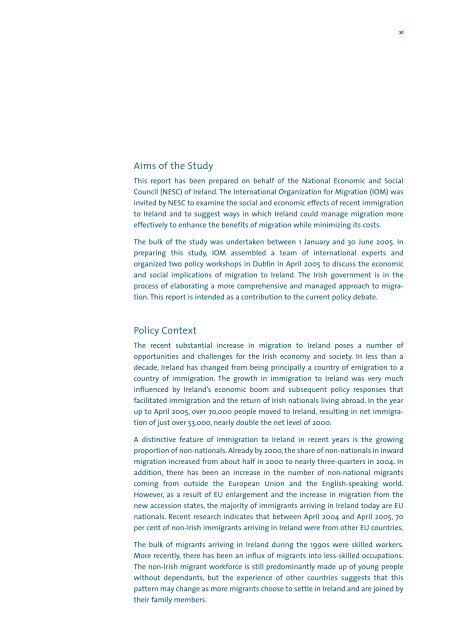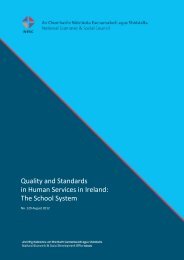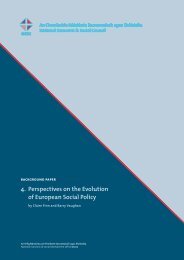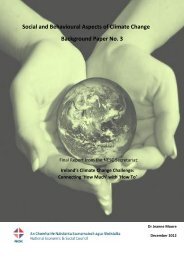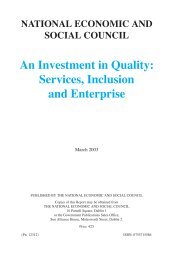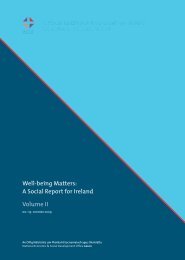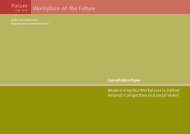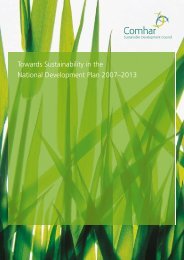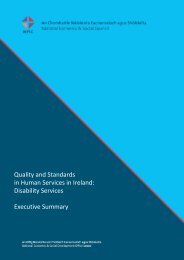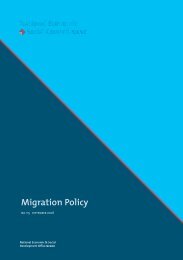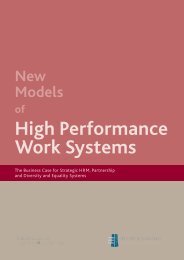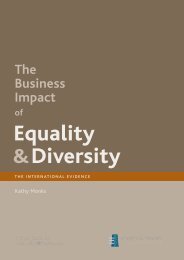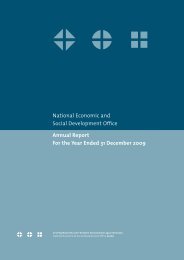Managing Migration in Ireland - European Commission - Europa
Managing Migration in Ireland - European Commission - Europa
Managing Migration in Ireland - European Commission - Europa
You also want an ePaper? Increase the reach of your titles
YUMPU automatically turns print PDFs into web optimized ePapers that Google loves.
xiAims of the StudyThis report has been prepared on behalf of the National Economic and SocialCouncil (NESC) of <strong>Ireland</strong>. The International Organization for <strong>Migration</strong> (IOM) was<strong>in</strong>vited by NESC to exam<strong>in</strong>e the social and economic effects of recent immigrationto <strong>Ireland</strong> and to suggest ways <strong>in</strong> which <strong>Ireland</strong> could manage migration moreeffectively to enhance the benefits of migration while m<strong>in</strong>imiz<strong>in</strong>g its costs.The bulk of the study was undertaken between 1 January and 30 June 2005. Inprepar<strong>in</strong>g this study, IOM assembled a team of <strong>in</strong>ternational experts andorganized two policy workshops <strong>in</strong> Dubl<strong>in</strong> <strong>in</strong> April 2005 to discuss the economicand social implications of migration to <strong>Ireland</strong>. The Irish government is <strong>in</strong> theprocess of elaborat<strong>in</strong>g a more comprehensive and managed approach to migration.This report is <strong>in</strong>tended as a contribution to the current policy debate.Policy ContextThe recent substantial <strong>in</strong>crease <strong>in</strong> migration to <strong>Ireland</strong> poses a number ofopportunities and challenges for the Irish economy and society. In less than adecade, <strong>Ireland</strong> has changed from be<strong>in</strong>g pr<strong>in</strong>cipally a country of emigration to acountry of immigration. The growth <strong>in</strong> immigration to <strong>Ireland</strong> was very much<strong>in</strong>fluenced by <strong>Ireland</strong>’s economic boom and subsequent policy responses thatfacilitated immigration and the return of Irish nationals liv<strong>in</strong>g abroad. In the yearup to April 2005, over 70,000 people moved to <strong>Ireland</strong>, result<strong>in</strong>g <strong>in</strong> net immigrationof just over 53,000, nearly double the net level of 2000.A dist<strong>in</strong>ctive feature of immigration to <strong>Ireland</strong> <strong>in</strong> recent years is the grow<strong>in</strong>gproportion of non-nationals. Already by 2000, the share of non-nationals <strong>in</strong> <strong>in</strong>wardmigration <strong>in</strong>creased from about half <strong>in</strong> 2000 to nearly three-quarters <strong>in</strong> 2004. Inaddition, there has been an <strong>in</strong>crease <strong>in</strong> the number of non-national migrantscom<strong>in</strong>g from outside the <strong>European</strong> Union and the English-speak<strong>in</strong>g world.However, as a result of EU enlargement and the <strong>in</strong>crease <strong>in</strong> migration from thenew accession states, the majority of immigrants arriv<strong>in</strong>g <strong>in</strong> <strong>Ireland</strong> today are EUnationals. Recent research <strong>in</strong>dicates that between April 2004 and April 2005, 70per cent of non-Irish immigrants arriv<strong>in</strong>g <strong>in</strong> <strong>Ireland</strong> were from other EU countries.The bulk of migrants arriv<strong>in</strong>g <strong>in</strong> <strong>Ireland</strong> dur<strong>in</strong>g the 1990s were skilled workers.More recently, there has been an <strong>in</strong>flux of migrants <strong>in</strong>to less-skilled occupations.The non-Irish migrant workforce is still predom<strong>in</strong>antly made up of young peoplewithout dependants, but the experience of other countries suggests that thispattern may change as more migrants choose to settle <strong>in</strong> <strong>Ireland</strong> and are jo<strong>in</strong>ed bytheir family members.


